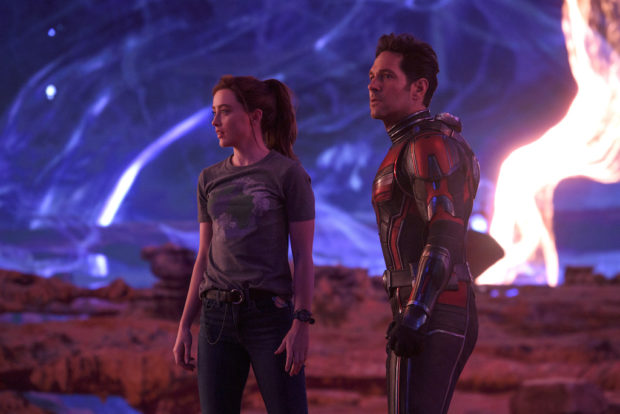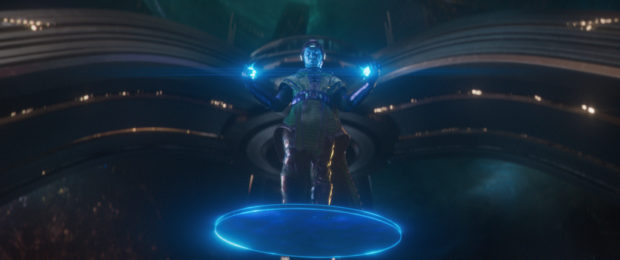“Ant-Man and the Wasp: Quantumania”: Maggie’s Review

In theaters now is “Ant-Man and the Wasp: Quantumania,” the third installment, starring Paul Rudd, as Scott Lang’s Ant-Man. Back in the film is Evangeline Lilly as the Wasp, Hope van Dyne, Michelle Pfeiffer as her mother Janet van Dyne, and Michael Douglas, as Hank Pym.

The relationship between parent and child is a throughline of the “Ant-Man” films: while the first Ant-Man film focused on Scott Lang‘s journey from prison to regain the time and trust of his daughter, the third film in the series, explores, their relationship and family dynamic as she has grown. After the appearance of the Quantum Realm in “Ant-Man and the Wasp,” Cassie (Kathryn Newton) has developed a satellite to communicate with the Quantum Realm where her Janet van Dyne was once trapped. This satellite opens a portal that pulls the whole family into an upside down world of baffling new species, politics, and villains.

The primary appeal of Ant-man within the Marvel cinematic universe is the comedic prowess of Paul Rudd. Ant-Man is not the strongest, fastest or most intriguing of the Avengers but he is the most relatable. Other Avengers are larger than life, but he is literally the opposite. While “Ant-Man” has cameos in larger ensemble ”Avengers” movies, standalone “Ant-Man” films have typically had lower stakes. The stakes of this film are hard to understand. The consequences of the antagonists plans are either so small as to be incomprehensible or literally world shattering. Though Jonathan Majors makes an intimidating and striking Kang, his introduction into the MCU feels inconsequential, as he is only the most recent of a handful of extraterrestrial God-like figures to appear in a film and obliquely reference some big terrible thing that’s coming. If every Marvel movie now ends with the threat of galaxy and time rending chaos, what is really the stakes of anything?

When the apparent stakes of the movie are so high, Marvel often rests on the interpersonal dynamics of their heroes, and loved ones. I don’t think I’m unique in finding the “Ant-Man” films to be amusing, but not the pinnacle of the MCU and therefore did not necessarily enter this film with the lore of the prior two films tattooed in my brain. Compared to other friendships, relationships, and families in the MCU, those of the Pyms and van Dynes are not the most ravenously followed and yet “Ant-Man: Quantumania” assumes that the audience both remembers and cares deeply about the inner workings of this family. For me, this was not the case. In general Marvel movies are accessible to audiences because they don’t require much prior knowledge to enjoy. Film installments such as “Avengers: Endgame”, and “Infinity War” required more knowledge than others, but standalone films tend to do exactly that: stand alone. This film doesn’t necessarily do that. There is prior knowledge assumed that the audience has and references made to specific people or devices that pull the viewer out of the film with the thought “Am I supposed to know what that is?”

Similar to 2022’s “Doctor Strange in the Multiverse of Madness,” “Quantumania” relishes at times in being simply weird and outrageous. The family adventure lost in an unfamiliar, wacky universe, felt very similar to November’s “Strange World.” However, this version was much less enjoyable. The people, creatures and landscape of the Quantum Realm are not nearly so compelling. While William Jackson Harper and Hannah John-Kamen are amusing and kick ass, respectively, in their roles as residents of the Quantum Real, many of these scenes were more filler than plot or comic relief.
Overall, I cannot recommend seeing “Quantumania” in theaters as it committed the cardinal sin of a big stupid Marvel Cinematic Universe action film: to be boring. More than being odd, confusing or simply low stakes the movie had me checking my watch multiple times. This film isn’t a total mess per se, but it is mediocre, a rarity within the usually consistent MCU.


